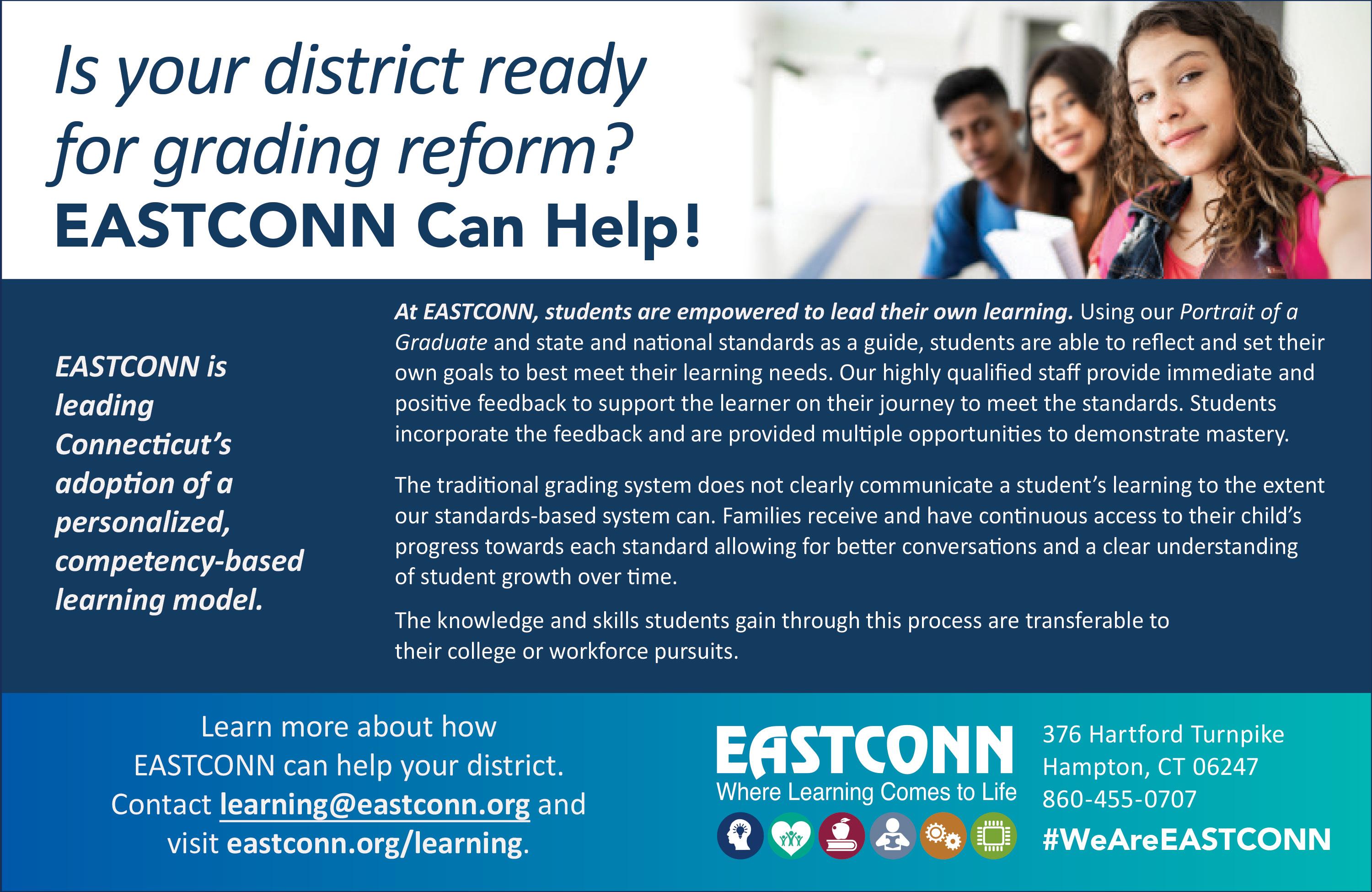
3 minute read
Legislative Task Forces, Work Begins Anew
Sheila McKay Sr. Staff Associate for Government Relations, CABE
From the work of the General Assembly this session comes more work, in the form of task forces and working groups. Below are four of the groups and a summary of the charge to each of the groups.
Advertisement
Education Mandate Working Group
Identify those mandates that are overly burdensome or have the effect of limiting or restricting the provision of instruction or services to students, including a detailed analysis of each such mandate so identified, the specific statutory or regulation citation for such mandate and how such mandate is imposed on the department or board of education, and recommendations regarding the development of a biennial review process for the purpose of identifying obsolete or duplicative mandates. The executive director of the Connecticut Association of Boards of Education, shall serve as the chairperson of the working group.
Building Educational Responsibility with Greater Improvement Networks Commission (BERGIN)
Study various educational issues: (1) funding for local school districts, charter schools, and magnet schools and (2) accountability measures for alliance districts (educational reform districts and legacy alliance districts, under the bill) charter schools, and magnet schools.
It must also study the adequacy of financial reporting by (1) school boards, including the reporting associated with participation in the Open Choice program; (2) the governing councils of state and local charter schools and charter management organizations; and (3) operators of interdistrict magnet school programs.
Additionally, it must include the financial impact of interdistrict magnet school programs, charter schools, and the Open Choice program on school boards, including education cost sharing (ECS) grant amounts, transportation costs, special education services and other general educational costs for children who live in the school district but do not attend a school under the school board’s jurisdiction.
Connecticut Civics Education, Civics Engagement, and Media Literacy Task Force
1. Review existing state and national curricula and standards, classroom practices, and high school and college graduation requirements to identify and publicize best practices in instruction on civics, citizenship, media literacy, and American government;
2. Receive recommendations from educators, administrators, government entities, nongovernmental organizations, and the public;
3. Review existing civics, citizenship, media literacy, and American government educational opportunities provided throughout Connecticut by governmental and nongovernmental entities and organizations; and
4. Explore the feasibility of establishing public and private partnerships to fund, coordinate, promote, and support enhancements to engagement and instruction.
Teachers’ Retirement System Task Force
Analyze the per-pupil equity of
Teachers’ Retirement System (TRS) funding. The task force must develop recommendations regarding:
1. The student equity implications of appropriating funds through the state TRS laws toward the pension normal cost and the unfunded liability amortization payments necessary to fully fund the TRS (unfunded liability payments are made due to underfunding in previous years);
2. Whether and how much municipalities should contribute to the pension normal cost and the unfunded liability amortization payments in order to make the General Assembly’s allocations more equitable on a per-pupil basis;
3. Whether certain municipalities should be exempted from assuming a percentage of the municipal contributions identified above due to the following factors: (a) economic distress, (b) inability to pay, or (c) low academic performance; and
4. Whether and how the resources generated through municipal contributions should be directed by the General Assembly toward (a) reducing educational inequities and (b) promoting the TRS sustainability.
Nicholas Caruso Sr. Staff Associate for Field Service and Coordinator of Technology, CABE
As part of my work in helping boards of education members understand their roles and responsibilities, I try and get them to understand the problems presented when they speak casually (or maliciously) about issues in public. There is real tension between a person’s first amendment right to speak, and the conflict of interest that these comments might generate. I am not a constitutional lawyer, and don’t intend to speak to those legal rights, but even I understand that while a person does have the right to say what they think, it does not always mean that there won’t be consequences for those comments.
As elected officials, especially as those responsible for your community’s most precious resource (children); what you say does impact what goes on around you. Community members hear you speak (or read your letters, tweets or Facebook comments), and your comments can have serious impact on the district. Technology and


